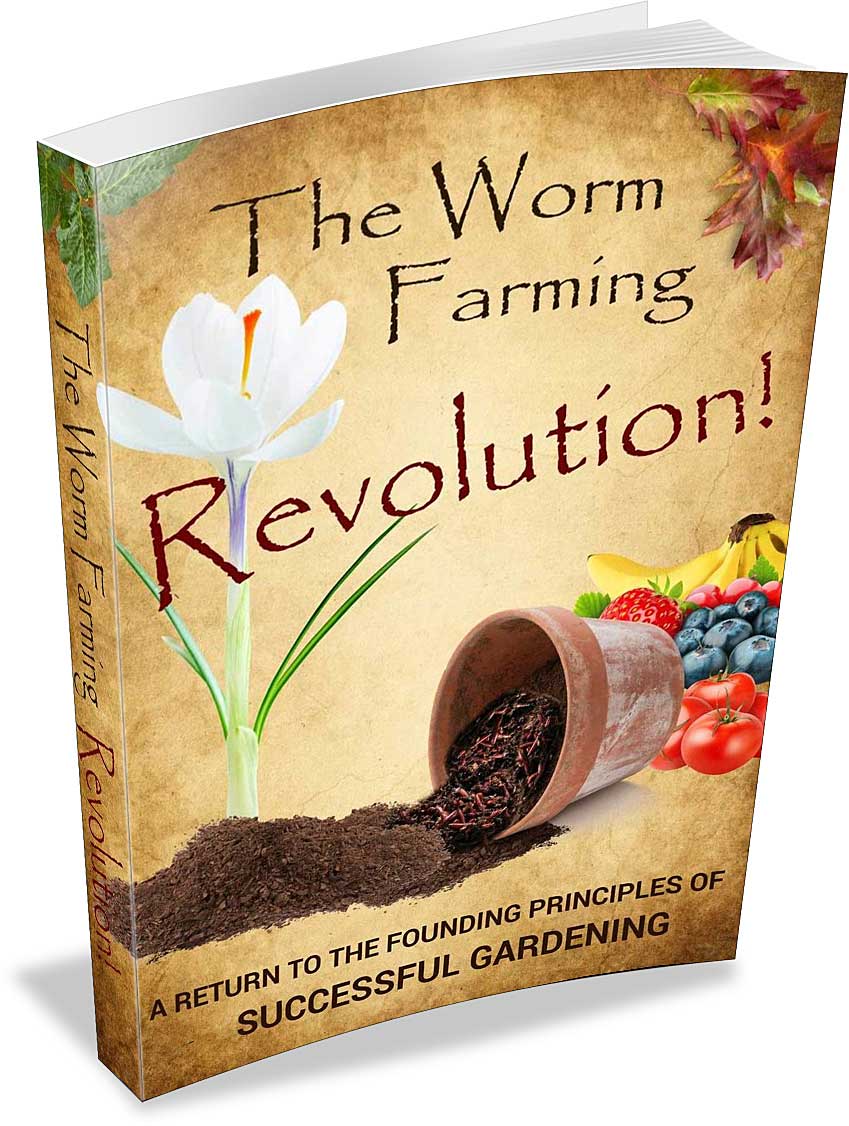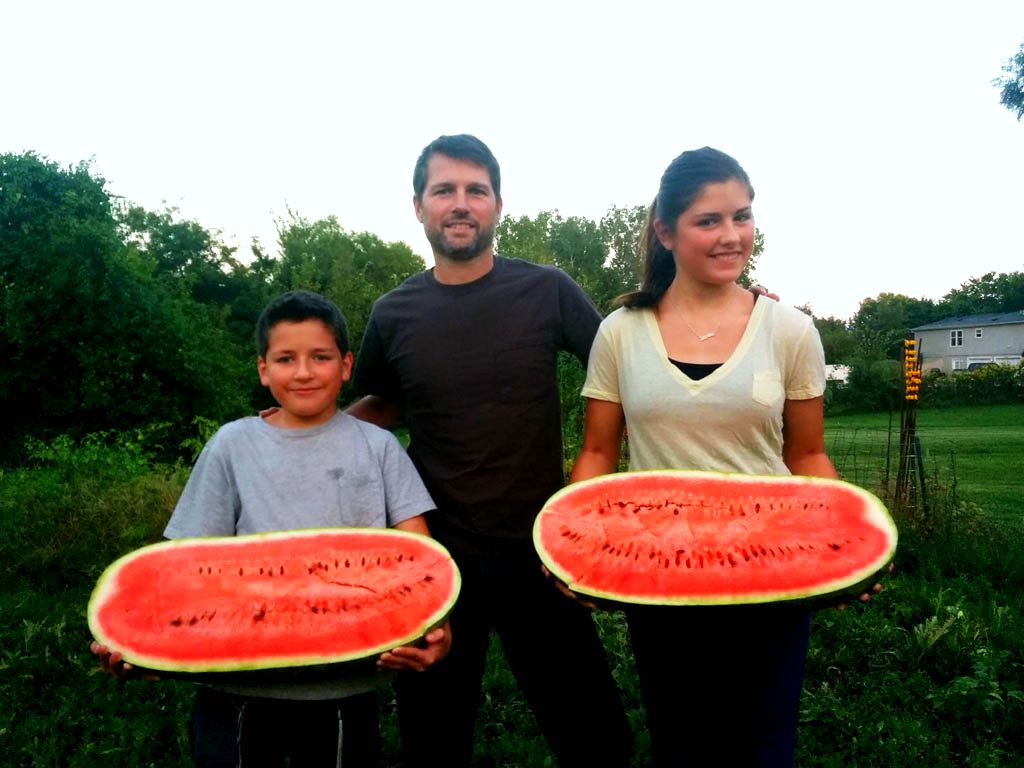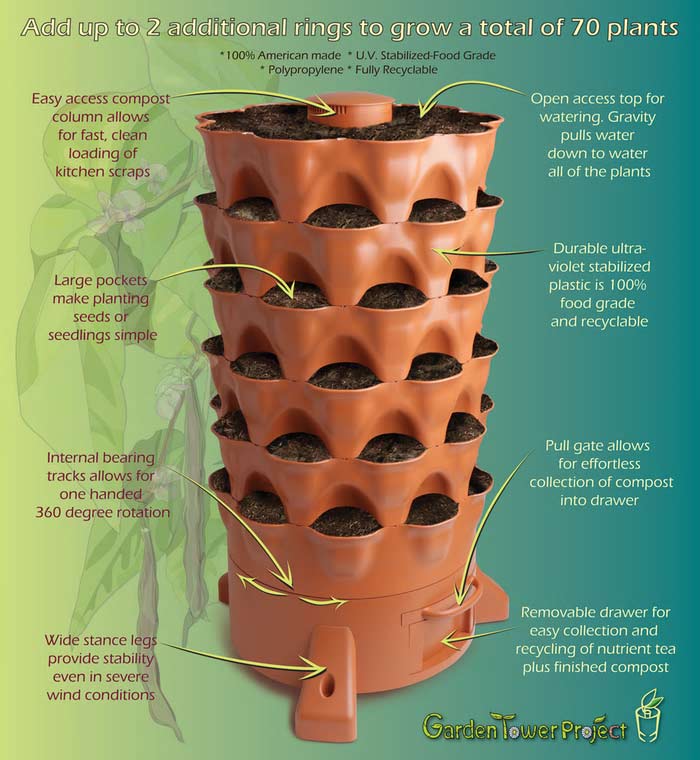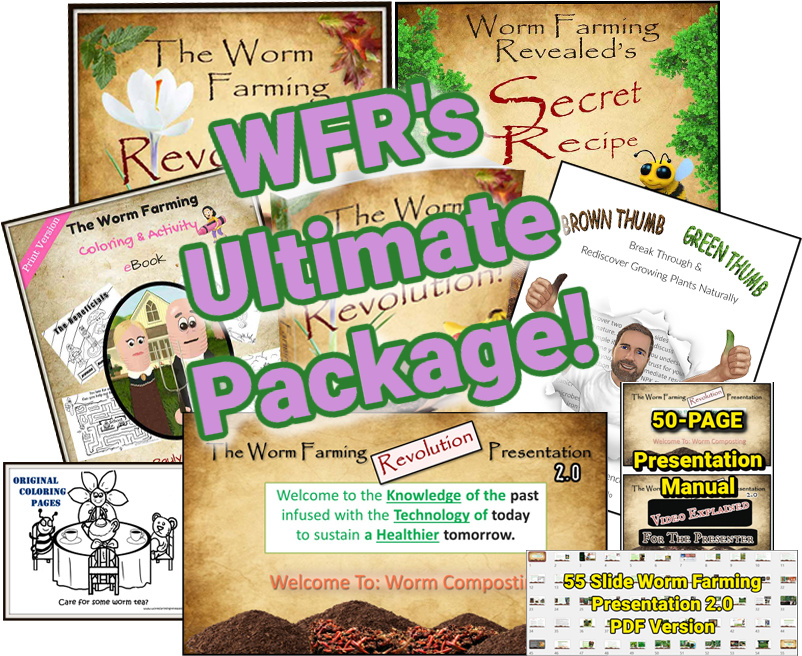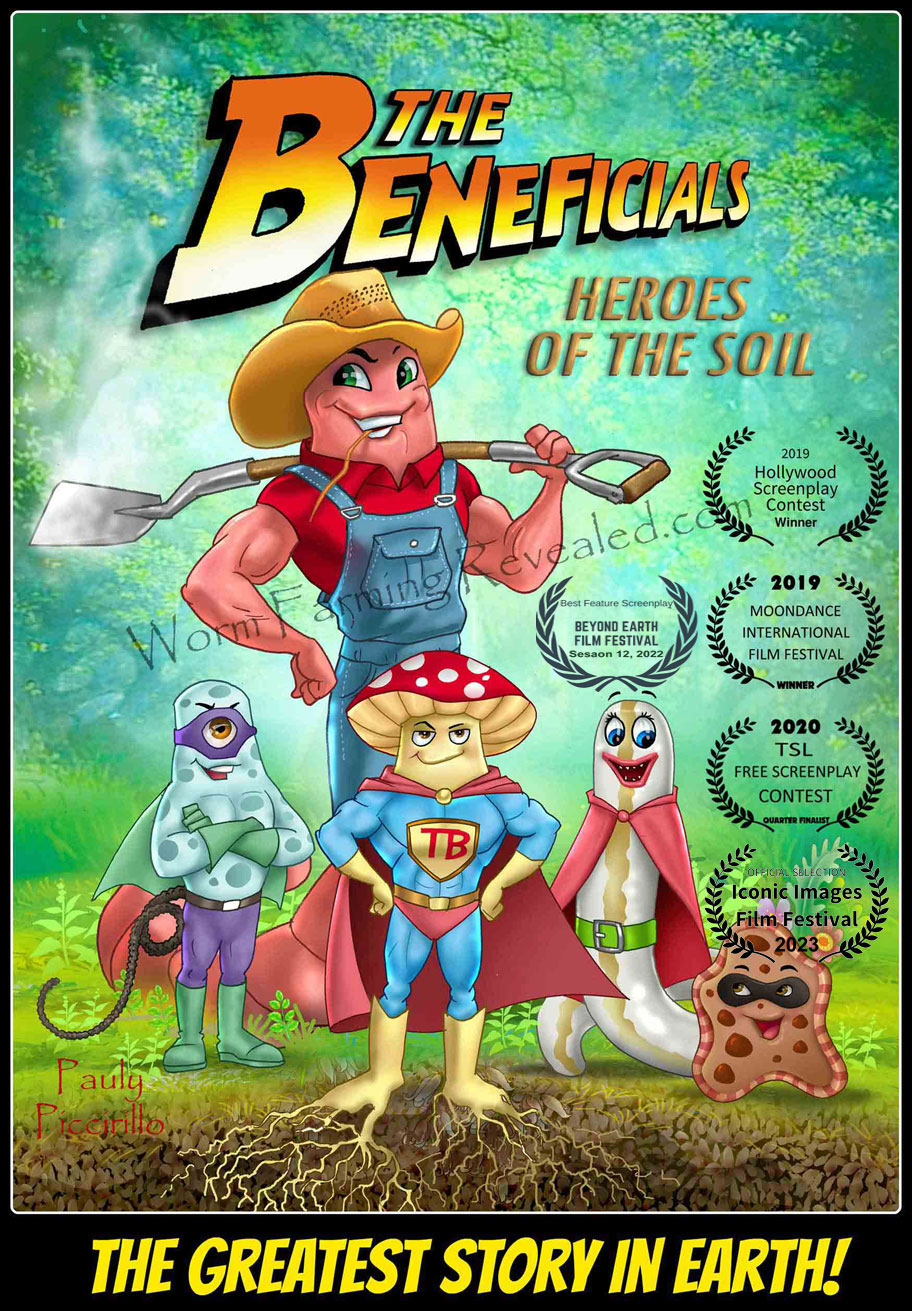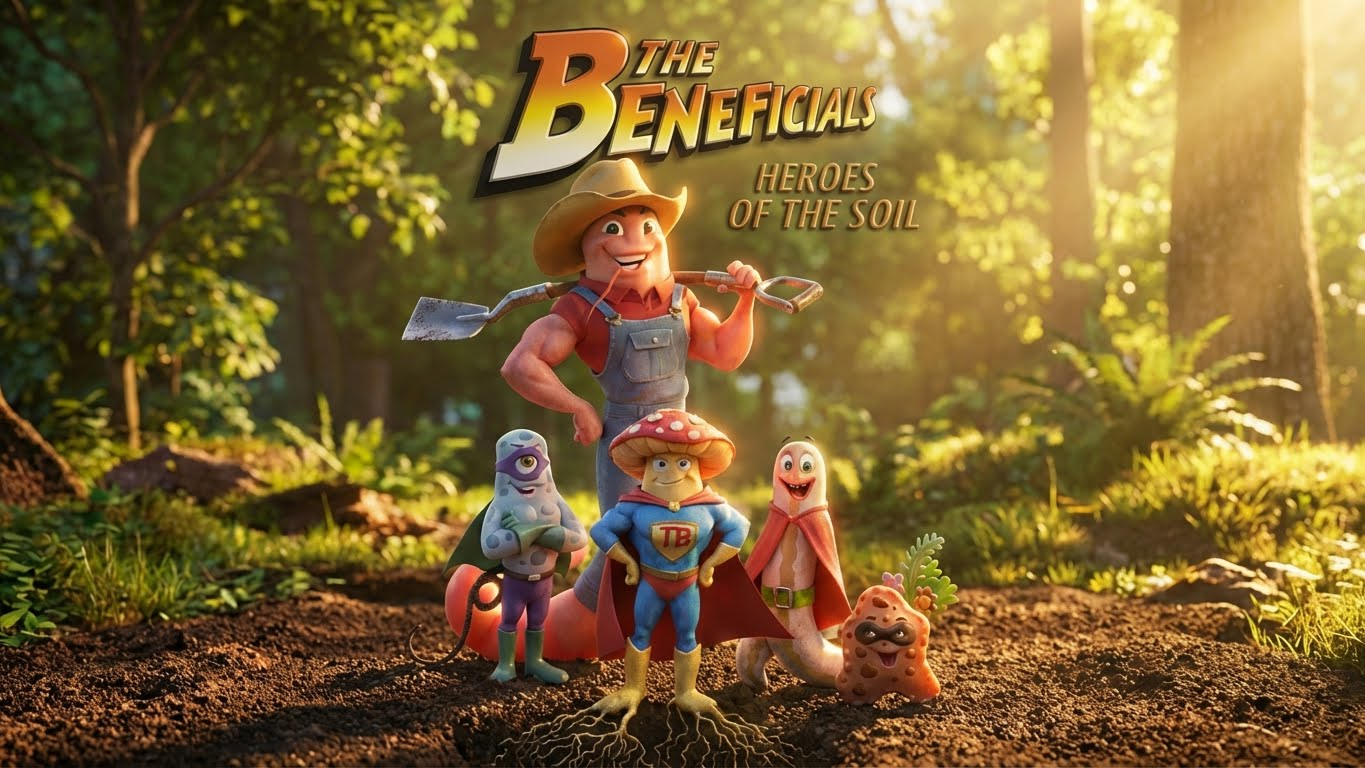Diatomaceous Earth and Bees
So what are the affects of Diatomaceous Earth and bees?
I first asked myself that very same question when I bought a bag of DE and blew it all over EVERYTHING to get rid of a few unwanted pests.
My Diatomaceous Earth Blunder
All of Our DE Pages
- What is DE and how to apply it in the worm bin.
- DE Food Grade for home, garden, and animals.
- DE Benefits for humans
- DE Safe Practices
- DE and Bees
Harmful or not?
(you are here)
After a long hard and very productive day I cleaned up, ate, and went to bed.
After lying there for a while, thinking of the day well spent, it dawned on me and I thought to myself, "What did I just do...?" I knew Diatomaceous Earth killed the good, the bad, and the ugly insects, but never did I once think about the bees.
I LOVE Bees...everything about them I love, from there honey to their pollinating. Okay, except for their sting.
So what did I just do?
I spent all the rest of the year thinking about Diatomaceous Earth and bees and how they could possibly coincide with each other. Finding a book on the subject was impossible. I thought, "Well maybe it doesn't affect them like other insects."
I did some research on the Internet and some said it doesn't hurt them and others said it did. Then, I just decided to do the responsible thing and ask a professional beekeeper.
 Photo: Honey Bees Online |
I spoke with David Burns of Long Lane Honey Bee Farms in Fairmount, IL. and also publisher of Honey Bees Online and asked him what were the affects of Diatomaceous Earth and bees. He said, "DE controls insects by cutting their exoskeleton and unfortunately bees fall in that category. Not good for honey bees.
|
They will attempt to groom off the DE and thus it will do its job on honey bees too. Sorry."
Thanks David for your quick response. I have also read in beekeeping forums that it will definitely kill bees. Yes, I am sorry too!
Well, to say the least, I was very disappointed.
Then, I received a book from one of my DE suppliers. It was a book that came out in 2010 by Tui Rose, whom I've had the pleasure of communicating with, titled Going Green Using Diatomaceous Earth How-To Tips.
~Here is an excerpt from page 65 concerning Diatomaceous Earth and bees.
"When Diatomaceous Earth is applied to crops or orchards, the honey bee tends to protect themselves by simply avoiding those blossoms already treated with DE. However, if DE does get on a bee's body, it is covered with slick hairs that are able to help prevent dehydration of body fluids.
Then the bee simply vibrates its wings to remove the dust and protect itself. However, should a bee get enough DE on it to cause death, it's the only insect that dies.
That was very uplifting to read considering I threw a thick blanket of DE over my entire garden. So how do we make it possible for the harmony of Diatomaceous Earth and bees? First of all avoid making the mistake I did by blindly throwing it everywhere.
Bees will probably have difficulty in ridding themselves of the dust in such thick amounts. It is my opinion that diatomaceous earth should only be used when necessary to eliminate an over infestation of pests in the garden.
There are many beneficial insects that work with each other to help eat other insects and to pollinate. Read my Worm Tea page. Worm tea can help plants produce a natural pesticide.
As Tui Rose states, "DE is best applied early in the morning and late in the evening when bees and other beneficial insects are at a minimal." I would also avoid using it around any blossoming plants and flowers as the bees will avoid the dust altogether and the plant will not get pollinated and bees are the best pollinators, especially of the melon family. Bees also tend to pollinate more in the early mornings. So get out there even earlier.
I believe it is okay to dust plants that do not have flowers such as lettuce, onions, cabbage, herbs, potatoes...etc. if you are having a problem with infestations. I would avoid dusting in their later stages when the plants create flowers and begin to seed.
|
Keep in mind to always dust on a calm day so as not to affect the natural surroundings. |
Another application that would be good for the coexistence of Diatomaceous Earth and bees as a proactive measure would be to sprinkle it on the ground around the plant deterring or killing many insects that are creepy crawly. |
Final Thought
There are many naysayers in the gardening community that are against using DE as an insecticide. I believe it is far better to use DE than chemical pesticides when used properly.
Chemicals Kill Everything...EVERYTHING!
Even the plants whither and it's not making us any healthier. If every industrial, commercial, and Ma and Pa farmer converted over to using DE not only would it rid the plants of pests, but the plants would be healthier from the many trace minerals in DE and we would be healthier for the same reason.
I know there are those that are scared about the decline in the bee population but the bees also have natural predators as well.
Bees have a special ability to sense danger therefore avoiding those areas that are dusted, and their predators, like the wasp or hornet, (a single hornet can kill 1,000 bees) may not be so fortunate.
Chemicals have the ability to carry on for distances and when one bug is infected it carries the chemical to the other bugs. We are also ingesting the chemicals that are on the fruit.
Not so with DE. When applied properly on a calm day, it sticks to the plant, almost becoming part of it till rain comes and washes it into the soil to then nurture the plant and then us, but there is no safe way to use chemicals as a pesticide, period.
So that's my view on Diatomaceous Earth and bees. I'm not saying that DE is the only remedy for pests nor is it a panacea for all. DE is a proven effective way for going green and to control pests in a given, specific controlled area and nothing is affected beyond that area.
Let the pests decide if they want to come into our garden and eat of our labor and bounty or leave and go feast on the bounties of the forest and fields, but NOT in my garden, on my animals, or in my house.
What do you think sounds better?
1. Diatomaceous Earth and Bees or
2. Chemicals and Bees
I think bees can harmonize with the use of DE but the latter scares me.
My Most Trusted DE Supplier Below
I trust, use, and recommend these DE products to all of my readers.
Buy them for your health, your animal's health, and to kill unwanted pests & parasites safely and naturally.
Buy Diatomaceous Earth Products
|
|
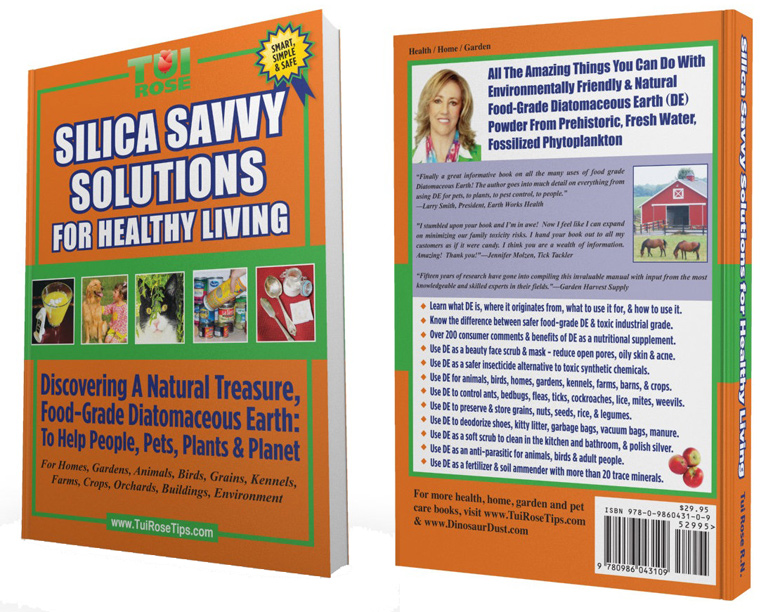 |
Have A Great Story About Diatomaceous Earth?
Do you have a great story about this? Help us to spread the word about Diatomaceous Earth. Tell us how it benefits you.
What Other Visitors Have Said
Click below to see contributions from other visitors to this page...
Diatomaceous Earth and Fire Ants 




I have a small business growing tomato, pepper, and vegetable starts for farmers and local folks each spring. Because I use only organic products and no …
Tui Rose on honey bees?! 




I am a beekeeper and have been trying to find good research regarding DE's impact on the honey bee.
I have found Tui Rose's book to be one of the most …
Organic is thee only way to Grow ;) 




Wondered if you noticed a decline in your bee population after your application of DE? We use Diatomaceous Earth and I have yet to notice a decline in …
D.E. Saves my Sanity (well maybe) 




Before moving to Ohio, I believed Bed Bugs to simply be a child's story and bedtime rhyme. To my horror they invaded our home silently, without even bringing …
DE and my trip to Hawaii! Not rated yet
I had been taking DE in my juice for a while. So naturally I took it with me on my trip to Hawaii. I kept it double bagged in zip locks and even put a …
Diatomaceous Earth and Fire Ants Not rated yet
I have a small business growing tomato, pepper, and vegetable starts for farmers and local folks each spring.
Because I use only organic products and …
Tell Monsanto-Stop with the Toxic,DNA,Carcinogenic Chemicals..Have you No Conscience? Not rated yet
Diatomacious earth can be used safely in gardens ,and will not harm bee's if used correctly as a light dusting...at times of day appropriate.
It is …
Return to Diatomaceous Earth From Diatomaceous Earth and Bees


